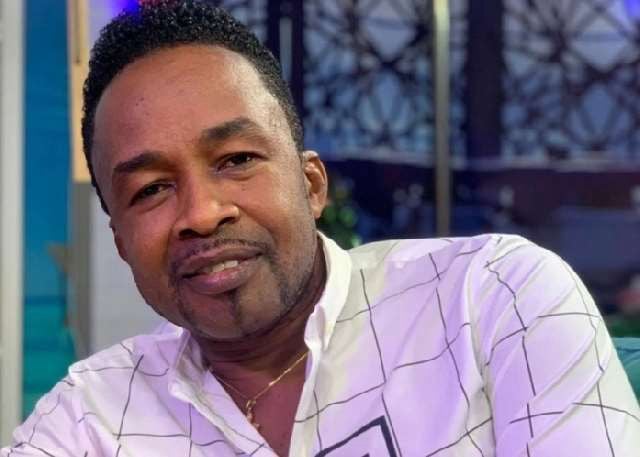Nicholas Omane Acheampong, a Ghanaian musician and vocal supporter of the New Patriotic Party (NPP), has launched a critique against the incumbent National Democratic Congress (NDC) government, alleging a stark contrast in their approach to education compared to the NPP’s previous eight-year tenure. Acheampong’s central argument hinges on the claim that the NPP’s flagship Free Senior High School (Free SHS) policy effectively eliminated the financial burden of secondary education for Ghanaian families, a benefit he asserts has been eroded under the three-month-old NDC administration. He cites personal anecdotes, claiming that during the NPP’s time in office, no parent approached him for assistance with school fees, a situation that has dramatically reversed since the NDC assumed power. He points to requests for financial aid to cover Basic Education Certificate Examination (BECE) registration fees, a cost he contends the NPP government absorbed, further highlighting the perceived shift in educational policy and its impact on ordinary Ghanaians.
Acheampong’s narrative underscores a fundamental difference in the two parties’ educational philosophies. The NPP, under former President Nana Akufo-Addo, championed the Free SHS policy as a means of ensuring broader access to secondary education, regardless of socioeconomic status. This policy garnered both praise and criticism, with proponents lauding its potential to uplift disadvantaged communities and opponents raising concerns about its sustainability and potential impact on educational quality. The NDC, while not outright rejecting free SHS, has expressed reservations about its implementation and has historically favored a targeted approach to educational support, focusing on specific demographics and needs. Acheampong’s statements suggest that the NDC’s current policies, though still in their nascent stages, may signal a shift away from the universal coverage model embraced by the NPP, potentially reintroducing financial barriers for some families.
The musician’s visit to the office of the Minority Leader in Parliament, Alexander Afenyo-Markin, adds a political dimension to his pronouncements. Beyond his personal observations, Acheampong’s engagement with a prominent opposition figure suggests a broader effort to mobilize support against the current government and frame the narrative surrounding its educational policies. By publicly highlighting the alleged hardships faced by families under the NDC, Acheampong seeks to bolster the NPP’s position as the champion of accessible education and to portray the NDC as failing to prioritize the needs of the poor. This tactic resonates with a core element of the NPP’s political messaging, which often emphasizes its commitment to social intervention programs and contrasts it with the NDC’s perceived focus on macroeconomic management.
The specific mention of BECE registration fees adds another layer to Acheampong’s critique. While the Free SHS policy addresses secondary education, the BECE represents a crucial juncture in the Ghanaian educational system, marking the transition from basic to secondary school. Acheampong’s assertion that the NPP government absorbed these fees suggests an extension of their commitment to free education beyond the secondary level, encompassing a wider scope of educational expenses. By highlighting the alleged re-emergence of these fees under the NDC, Acheampong aims to portray the current government as not only failing to maintain the progress made under the NPP but also actively regressing, imposing financial burdens on families at a critical stage of their children’s education.
The call for unity within the NPP and the assertion of a potential comeback in the 2028 general elections further contextualize Acheampong’s statements within the larger political landscape. His appeal for unity suggests an awareness of potential internal divisions within the opposition party following their electoral defeat. By emphasizing the need for a cohesive front, Acheampong aims to rally support and maintain momentum for the NPP’s future political endeavors. The expression of confidence in a 2028 victory serves as a call to action, urging party members to remain engaged and work towards regaining power. This forward-looking perspective frames the current challenges as temporary setbacks and reinforces the narrative of the NPP as the ultimate advocate for the welfare of Ghanaian citizens.
In essence, Nicholas Omane Acheampong’s statements represent more than just personal observations about educational policy. They constitute a politically charged critique of the incumbent government, aimed at galvanizing support for the opposition NPP. By highlighting the perceived contrast between the NPP’s pro-poor educational policies and the NDC’s alleged shortcomings, Acheampong seeks to position the NPP as the true champion of accessible education and lay the groundwork for a resurgence in future elections. His narrative taps into a broader debate about the role of government in providing social services and the potential consequences of different policy approaches, resonating with core constituencies on both sides of the political spectrum. The musician’s pronouncements serve as a microcosm of the ongoing political discourse in Ghana, highlighting the contentious nature of education policy and its significance in shaping public perceptions of political parties and their commitment to the welfare of the citizenry.


